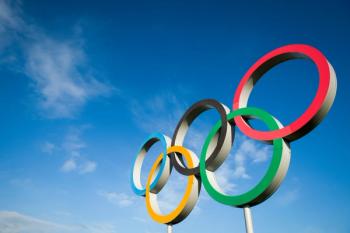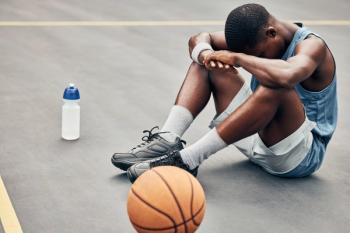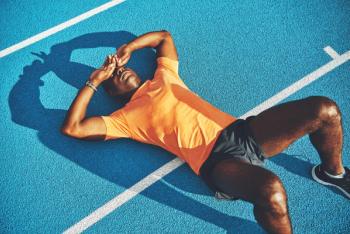
Adapting and Thriving in 2025: Olympic Takeaways for an Uncertain World
Olympians are excellent examples of how we can embody resilience, reflecting on our own growth.
The
The Power of Resilience in Challenging Times
The 2024 Summer Olympic Games provided compelling examples of resilience. Most notable was Simone Biles' extraordinary comeback. Her decision to prioritize mental health in 2021 set a precedent, and her remarkable return in 2024 reinforced the importance of self-care as a foundation for success. This aligns with findings from the National Association of School Psychologists, which emphasize that evidence-based
In a world marked by uncertainty—be it personal, professional, or societal—resilience becomes an essential skill. Research published in BMJ Mental Health suggests that higher resilience is associated with a 25% reduction in mortality risk among older adults, highlighting its significance for longevity and well-being.3
Intrinsic Motivation: The Key to Sustained Performance
Though awards, medals, recognition, and monetary gains often serve as external motivators for success, athletes like Léon Marchand demonstrated that resilience is not solely about overt triumphs; it is also about personal growth. Marchand's focus on competing against his own limits underscores the value of intrinsic motivation. Studies indicate that intrinsic motivation, driven by internal satisfaction and interest, is positively correlated with enhanced performance and creativity.4
Diversity: A Natural Strength
The Opening Ceremony showcased global diversity, reminding us that inclusion fuels innovation and excellence. As I took in the magic and beauty of the ceremony, I reflected on the diversity on display: this is what happens naturally when we open the doors of opportunity and competition to include all of us. True meritocracy does not result in a monolith of representation.
Research supports this perspective, indicating that diverse teams are more likely to outperform their less diverse counterparts, as diversity fosters a variety of perspectives and problem-solving approaches.5
Reflection Questions for 2025
As we progress through the new year, the lessons of the 2024 Olympics encourage us to reflect on our own resilience and growth.
- What recent challenge has prompted you to
adapt and grow ? - How do you currently define success, and how has that definition evolved over your life?
- In moments of adversity, what strategies help you to ground yourself, reset, and move forward?
- Who or what inspires you to persevere, even when faced with significant obstacles?
- What steps can you take today to cultivate resilience, and prepare for your next "comeback"?
We may not all have the chance to be Olympians on the world stage, but we can internalize the Olympic spirit and foster a mindset that not only overcomes obstacles but leverages them as opportunities for growth.
Carrying the Olympic Spirit Forward
The 2024 Olympics were more than a celebration of athleticism—they were a testament to human resilience and diversity. As we continue through 2025, let's embrace these lessons, committing to a life defined by perseverance, growth, and the unwavering belief in our ability to adapt and thrive in any circumstance.
Invoking the values and tenets of Olympism reminds us that our greatest achievements arise when we embrace our shared humanity. Let's carry that torch forward, building a world where excellence, equality, solidarity, respect, and fair play lead the way.
Dr Wilsa Charles Malveaux is a sports psychiatrist in Los Angeles, California, and CEO of WCM Sports Psych. She is an advocate and educator on the intersection of mental health, sports, and racial and social justice. Dr Charles Malveaux lends her expertise as a psychiatric consultant to multiple national sport-related agencies, professional sports teams, and organizations. She served for over 4 years as the Western Regional Trustee (region 4) on the Board of Black Psychiatrists of America. Dr Charles Malveaux now serves on the Board of Directors for the American Board of Sports and Performance Psychiatry (ABSPP), as well as on advisory boards for organizations serving the community.
References
1. Team USA closes remarkable Olympic games Paris 2024 with record-setting performances. United States Olympic & Paralympic Committee. August 11, 2024. Accessed January 30, 2025.
2. Evidence-based self-care practices to promote wellness and combat stress and burnout. National Association of School Psychologists. 2021. Accessed January 30, 2025.
3. Godman H. Resilience tied to a longer life. January 1, 2025. Accessed January 30, 2025.
4. Morris LS, Grehl MM, Rutter SB, et al.
5. Bodeker G, Pecorelli S, Choy L, et al. Well-being and mental wellness. Oxford Research Encyclopedia of Global Public Health. July 30, 2020. Accessed January 30, 2025.
Newsletter
Receive trusted psychiatric news, expert analysis, and clinical insights — subscribe today to support your practice and your patients.







